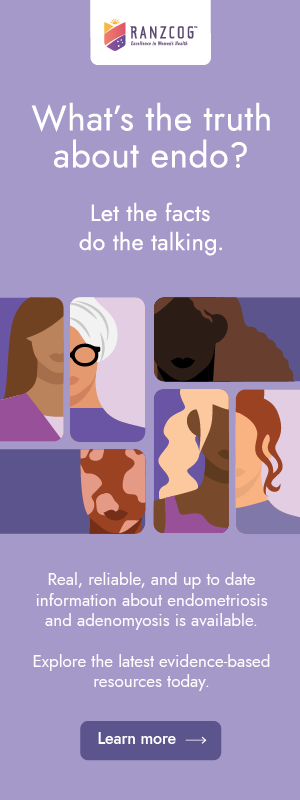I was asked to write on how a doctor should handle medical litigation from a non-scientific and personal standpoint. Unfortunately, that means that I am considered to be somewhat of an expert in this matter of being on the receiving end of a few law suits. In my medical career that now spans 36 years, I have been served with a summons on four occasions and one of the cases, which lasted 12 years, ended up in the High Court of Australia.
This article is aimed at assisting colleagues who may be sued in dealing with what can be one of the most personally devastating times in your professional career.
The day of the summons
Being issued with a summons can come as a complete surprise, as the medical event that precipitated the legal action may have occurred some years prior. However, with recent changes in the medical negligence laws, this is now less likely to occur. The process server should identify you and then hand over the document. Do not make any comments to the process server about the case or the plaintiff, as the process server can be summoned to give evidence in your case.
In the four cases I was involved with, I must say that after I had digested the content of the document, a feeling of disbelief was closely followed by anger, mainly towards the plaintiff but also towards all my other patients, my staff and the whole human race. Until this initial feeling of shock has passed, which usually takes about a day, I would strongly recommend, if possible, that you cancel the remainder of the day. It is natural to start having flashbacks to the events of the case and as this will certainly impede your judgement, it is important not to make any hasty or significant decisions during that day. I found a useful technique to help defuse these feelings was to start telling as many people who would listen (therefore, family, colleagues etc) about the summons and in most cases, they empathise with you and support you. It is obviously most important that you immediately notify your medical insurance company.
The Job syndrome: Why me, God?
Unfortunately, after the initial shock of the ‘day of the summons’, what I term ‘the Job syndrome’ sets in: Why me, God? I’m a good doctor, how could such a thing happen to me? There clearly is no satisfactory answer to this question, apart from ‘that’s life’ and dwelling on this matter can be ultimately quite destructive. The initial anger can therefore be followed by a period of destructive reflection. This usually includes such thoughts as: Why was I born? Why did I do medicine? Am I really such a terrible doctor? What will my colleagues and family think? Do I have enough money to retire? If this pattern of thinking is not addressed, then in some cases, a gradual slide into the depths of depression will occur. The following coping strategies that are outlined are critical to the successful control of these quite destructive feelings and thoughts.
The coping strategies
Failing winning Lotto and moving to Spain, the following strategies are useful:
- Don’t alter your usual work schedules or practices (apart from the day of summons).
- Don’t curtail any social activities.
- Learn about lawyers and the law. I became a life time member of the Medico-Legal Society of Queensland.
- Talk to your colleagues, family and friends about your case(s), including patients. When consenting patients for surgery, I (if appropriate to their case) refer to some of my past legal matters.
- The more the doctor gets used to talking about the case, the easier it will be to cope if it goes to trial and ends up in the press.
- During the post summons period, if your wife/husband, partner or colleagues suggest that you are becoming depressed, listen and seek professional help. Alcohol followed by suicide is not an alternative.
Personal involvement in the case
Personal involvement is a crucial aspect of the coping strategy. Trying to put the case out of your mind and just waiting for the lawyers to call you doesn’t work. I believe it is the doctor’s responsibility to know the stage the case is at and to cooperate with your legal advisers every step of the way. Indeed, no significant decision with regards to the conduct of the case should be made without the doctor’s knowledge. Constructive, not destructive, involvement in the preparation of the defence for your case will not only help control your negative emotions, but significantly assist your legal advisers in the preparation of a sound defence.
Management of the media
The simple rule is don’t make any statements to the media before, during or after the settlement or trial. Any statements to the media should only be made by your legal representatives.
The family
Naturally, doctors who are being sued are concerned as to what effect the possible negative publicity will have on their family. Remember, most cases will not get into the media unless the case goes to trial or a serious medical misadventure has resulted in the case going before a medical board.
Your family should be informed about all aspects of the case and what the likely outcome may be. By the time the one case of mine did go to trial, my children had become young adults and they came to court with me as part of my support team. I found that the vast majority of my patients also supported me when the case went public. Remember that today’s newspapers wrap tomorrow’s garbage.
If the case goes to trial
Fortunately, with the recent reform to medico-legal torts law, few cases should end up in the court. Today, most cases should be settled promptly (not like three of mine which each took over ten years) or more likely by arbitration. If it is a case of clear medical negligence, then usually an apology will be quickly delivered to the patient and a compensation settlement agreed to.
The final group of cases are the most difficult to deal with. The plaintiff, despite expert medical evidence to the contrary, feels they have been mistreated and want to have their day in court. I might say that all avenues should be exhausted before deciding to go to trial. I also believe that we should resist the urge to settle if we are not considered to be at fault. My case was lost in the district court and the judge awarded the plaintiff a very small sum of money as compensation. The temptation was to accept the court’s judgement and not appeal. I knew an appeal would attract more publicity, but because I did not agree with the court’s findings, I instructed my legal representatives to undertake an appeal. The Appeals Court overturned the initial judgment in our favour and the plaintiff then decided to take the matter to the High Court of Australia (more publicity). However, the High Court upheld the decision of the Appeals Court and the matter closed after 12 years.
The courtroom
If your case does go to trial, the following may be of assistance in how to get through this difficult time. Firstly, be educated about every aspect of the case, including reading all hospital notes, including nurse’s notes. Have input into the selection of your expert witnesses, meet with your barrister and have a very clear idea as to what questions may be put to you and what your response should be.
Your lawyers will give you legal support, however, you will need to organise your moral support. During the trial, I had a steady stream of family, friends and staff coming to observe the trial and this contributed significantly to not feeling too alone when some rather unpleasant things were said about me. Your lawyers will not be entertaining you at lunch, so arrange to have lunch away from the precinct of the court. I noted the plaintiff and her husband went to the court café on each day of the proceedings and one should avoid direct contact with the plaintiff outside the courtroom. You should be in the court throughout the duration of the trial and convey your opinion to your barrister as the trial progresses. Barristers are obviously used to the court environment, but we are not, therefore when answering questions, be brief, to the point, and don’t embellish the answer or try to be smart.
Conclusion
Unfortunately, medical negligence cases can take a significant emotional toll on the doctor and his or her family, resulting in breakdown in relationships with family, friends and patients. It is imperative therefore that the doctor employs every means to avoid being totally consumed in this emotional maelstrom.






Leave a Reply